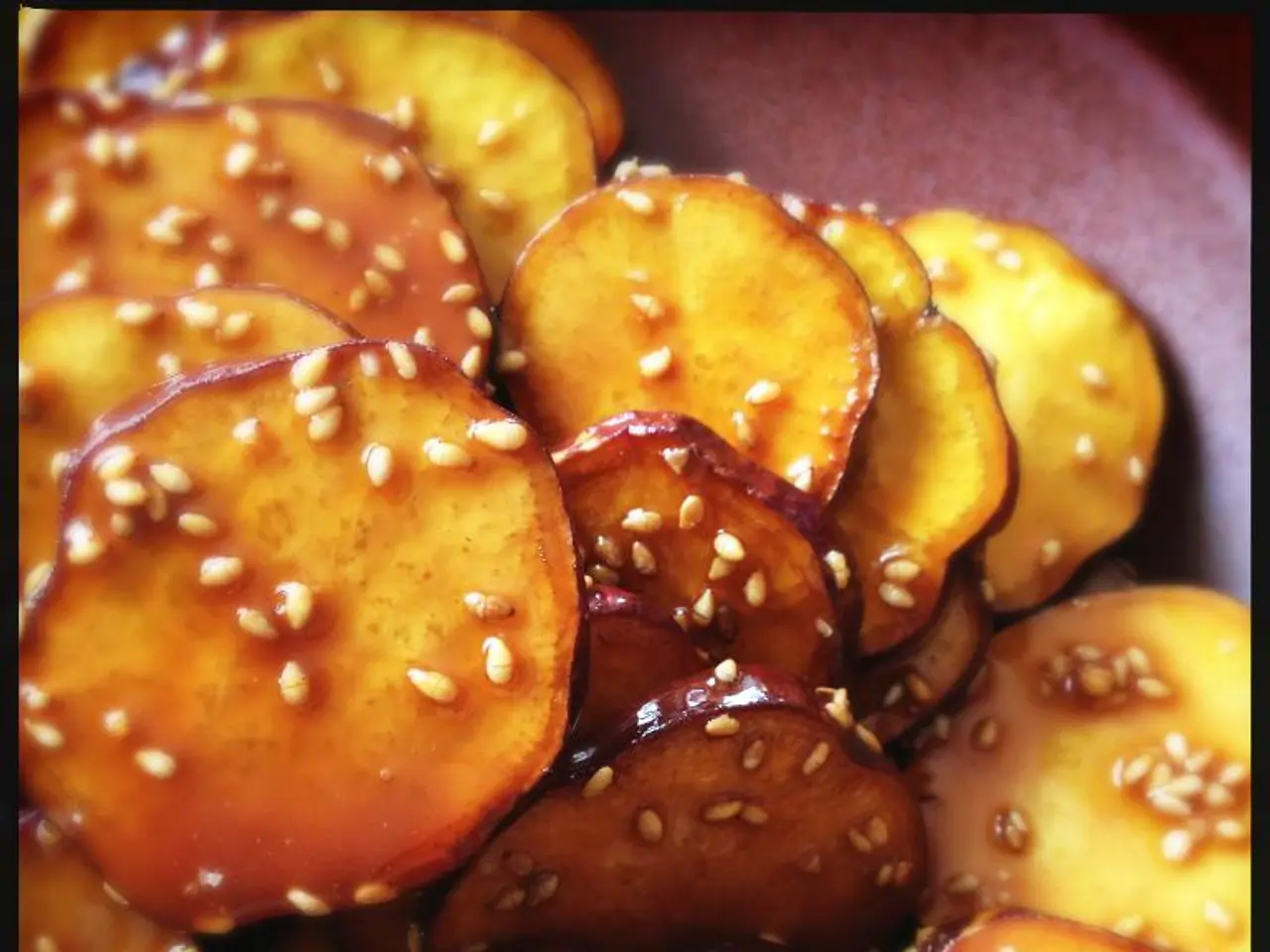"Always Clean Sprouts Thoroughly Before Consumption"
In the world of healthy eating, sprouts have gained popularity as a versatile ingredient, finding their way into various dishes such as bowls, salads, soups, bread, and wraps. However, it's essential to be mindful of food safety when it comes to these nutritious additions.
To ensure the safety of sprouts, particularly in the face of harmful bacteria like Salmonella, follow these key guidelines:
1. Start with clean, high-quality seeds specifically sold for sprouting to reduce contamination risk. 2. Rinse sprouts thoroughly and drain well after each rinsing to remove debris and excess moisture, which can promote bacterial growth. 3. Declump the sprouts to allow airflow when storing, preventing moisture buildup that encourages bacteria. 4. Store sprouts in a clean, airtight container such as a glass dish or Pyrex with good drainage, then keep refrigerated below 40°F (4°C) to slow bacterial growth. 5. Use paper towels inside the container to absorb excess moisture and keep sprouts dry. 6. Purchase sprouts that are fresh, smell fresh, and are refrigerated if buying, and avoid those with off odors or discoloration. 7. Cook sprouts when possible before eating, especially for vulnerable groups such as pregnant women, as cooking reduces the risk of food-borne illnesses. 8. Keep your refrigerator clean and maintain appropriate temperature control for storage safety.
For home-grown sprouts, the Federal Center for Nutrition (BZfE) recommends using clean equipment like Mason jars with sprouting lids, rinsing seeds multiple times a day with clean water, and storing grown sprouts properly in the refrigerator.
When it comes to legume sprouts like peas, beans, and lentils, the BZfE recommends blanching for at least two minutes or brief cooking before eating to help neutralize harmful substances like lectins. However, no special washing instructions are specified for home-grown legume sprouts.
It's important to note that store-bought "ready-to-eat" sprout products should still be washed before consumption, as advised by consumer advocates. High heat can kill bacteria, so it's possible for bacteria to be inside the sprouts, even after washing.
For added safety, consumer advocates suggest mung bean sprouts for Asian curries. However, nightshade plants (tomatoes, peppers, eggplants) are off-limits for sprouting due to toxic solanine.
Finally, remember to store sprouts in the refrigerator and use them as soon as possible after purchase to maintain their freshness and safety. By following these guidelines, you can enjoy the benefits of sprouts while minimizing the risk of food-borne illnesses.
- Besides being a versatile ingredient in health-and-wellness focused dishes like bowls, salads, and soups, sprouts are also found in bread and wraps.
- To ensure the safety of sprouts, one should start with clean, high-quality seeds, rinse thoroughly, declump, store properly, and refrigerate below 40°F (4°C).
- Consumer advocates advise washing store-bought "ready-to-eat" sprout products before consumption, as high heat might not kill all bacteria.
- Mung bean sprouts are suggested for added safety in Asian curries, while nightshade plants like tomatoes, peppers, and eggplants should not be sprouted due to toxic solanine.




